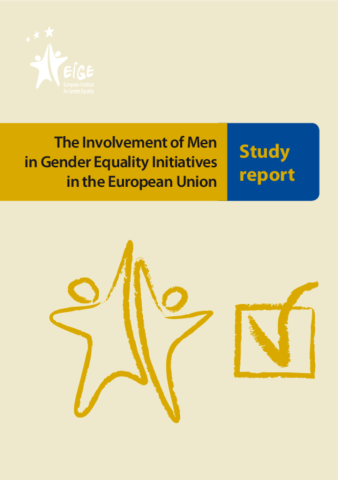Study report
This report is the final product of the Background study on the involvement of men in gender equality in the European Institute for Gender Equality’s (EIGE) working areas. The study was commissioned by EIGE and implemented by Men for Gender Equality (Sweden).
The general aim was to map relevant stakeholders in all EU Member States whose activity could be considered as contributing to a more effective involvement of men in the promotion of gender equality. Special attention was placed on specific approaches applied and materials produced by such actors.
The study focused on the period between 2007 and 2010 and was carried out between April and July 2011. In addition, the research team analysed and provided commentary on the collected information and reflected on good practice examples.
